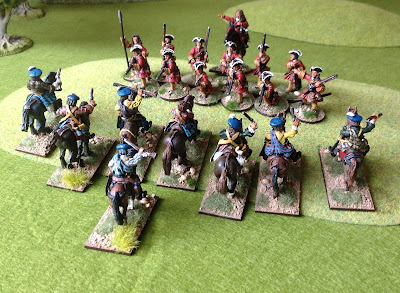My library pick this month was Alastair Mann's study of James VII (James II of England). A King who generally gets almost as bad a press as King John. While this is justified to a degree, we have to recognise the political and religious propaganda that went with the 'Glorious Revolution' that deposed him.
This is a chronological study of James focusing on his Scottish roles, which have been overlooked in past studies. James was King of England and Ireland as James II and King of Scots as James VII from the death of his elder brother, Charles II, on 6 February 1685. He was deposed in the Glorious Revolution of 1688. He was the last Catholic monarch of England, Scotland and Ireland.
Although born in London, he spent much of his life in exile. Firstly, after the Civil War and the execution of his father, Charles I. Then briefly during the Restoration when his conversion to Catholicism caused significant political difficulties for this brother. Finally, after William and Mary deposed him.
The Civil War may have ended as a formal conflict, but there were several rebellions in Scotland, supported to a greater or lesser degree by the court in exile. They almost always depended on the French or the Spanish, so support depended on a war between England and France.
The most interesting part of the book for me was James as a soldier, something I was unaware of. James served with the French army in the Fronde Civil War and other conflicts, learning his trade under Turenne, one of the great generals of the period. James became the most experienced military prince, since Henry VIII in England and James IV in Scotland. Scottish service in the French army went back to medieval times, and more than 10,000 Scots served in the French military between 1624 and 1642. There were two Scottish regiments during James' service. At the Battle of the Dunes, James was in Spanish service under Conde after the French had allied with Cromwell. He commanded five regiments of English, Scots and Irish troops. He was personally brave as well as a competent commander.
James was less skilled when it came to politics, and from an early age, his lack of flexibility was noted by observers. This was also the case with religion. A successful rule in England or Scotland would never be achieved if he persisted with a return to Catholicism. Ireland was a different matter, and even after the revolution, he had enough support to fight, albeit unsuccessfully, at the Battle of the Boyne. Religious disputes in Scotland were complicated by the suppression of the Covenanters, a fascinating story in its own right, mainly as it was mostly fought out near where I live. He also fell into the trap of his father by relying on Royal Absolution dismissing parliaments in Scotland and England.
James was buried in Paris, although various body parts were cut out and sent to religious institutions. Many survive to this day. Even his brain was presented in a lead casket to the Scots College in Paris.
This book undoubtedly educated me, but I found it hard going in places. There are very long chapters and a level of detail that sometimes distracts from the bigger story. If you want to understand the whole story of James VII, this is undoubtedly the book for you. But I suspect the general reader will struggle.
 |
| Some of my early Jacobite Rebellion 28mm figures. |

Nice review. It’s not a period I’m especially interested in. I don’t mind gaming the battles & campaigns but tend to skip over the political/social aspects.
ReplyDeleteCheers,
Geoff